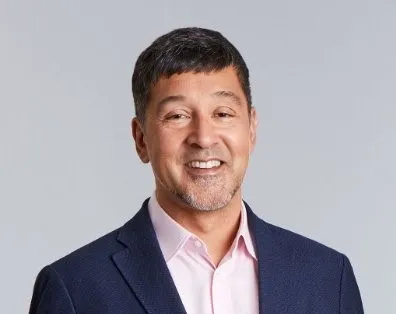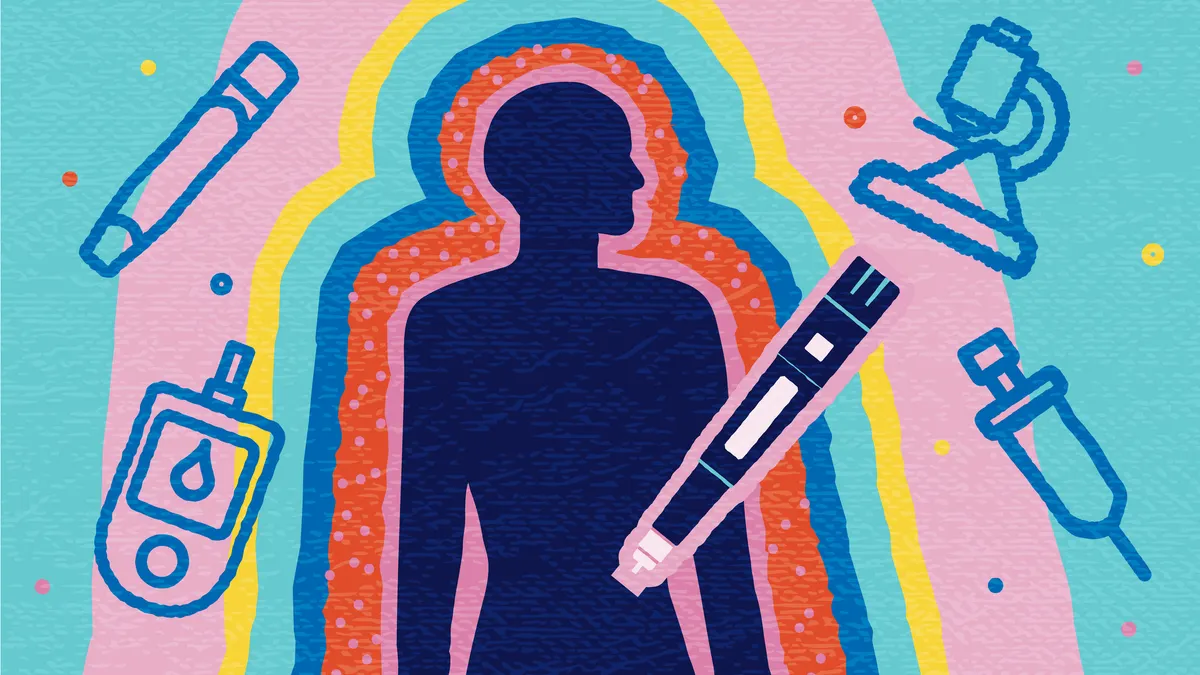Since the company’s launch in 2016, UK-based Compass Pathways has led the psychedelic boom in biotech. With a therapy that has advanced further than any other in the field while showing positive results in some of the largest clinical trials of a psychedelic drug to date, Compass has helped demonstrate how a biotech built on a “party drug” can succeed in the world of traditional pharma.
Given the promising results of its clinical trials, an analyst even recently quipped that Compass is poised to become the “McDonald’s of psychedelics.”

Its lead compound is made with a crystalline formulation of psilocybin, the psychedelic ingredient in “magic mushrooms,” and is being developed for treatment resistant depression (TRD), PTSD, anorexia and more. Late last year, Compass announced positive topline results from a phase 2b TRD dosing trial of the drug, called COMP360, and it is now preparing for a larger phase 3 study. Even if it clears the hurdle of ultimately winning approval, though, another remains — the company has to create an entirely new approach to commercialization.
Unlike many psychedelic treatments that have been developed by isolating psychoactive molecules, Compass believes the psychedelic experience is crucial to the effectiveness of the treatment. Therefore, it’s given in a clinical setting in conjunction with a supportive therapy session that can last six to eight hours. This approach of taking patients on a guided trip with specially trained therapists adds complexity to how the drug would be rolled out.
How can Compass develop and launch a completely different approach to TRD — an indication area with high levels of unmet need around the world — that requires this additional level of clinical involvement? Enter Kabir Nath.
On Aug. 1 Nath took the reins at Compass as its new CEO and has set his sights on helping steer the company through the process of developing a new model of commercialization for COMP360. Although Compass will have to create the approach, Nath’s deep experience in drug development, particularly in neurology, played a part in why he landed the gig and will surely kick in as the company moves closer to striking distance of approval.
"We’re building on a legacy of scientific knowledge that started 50 to 60 years ago."

Kabir Nath
CEO, Compass Pathways
Prior to this position, Nath spent eight years at Bristol Myers Squibb in several leadership positions including senior vice president of virology, U.S. pharmaceuticals. He also served as president and CEO of North American operations for Japan-based Otsuka Pharmaceutical, whose large portfolio includes a pipeline of treatments for psychiatric and neurological disorders.
“During my time at Otsuka, I led the development and commercialization of pharmaceutical products and digital solutions addressing complex mental health needs and coordinated the company’s technology partnerships and capabilities,” Nath explained in a public statement to employees on Aug. 1. “As you get to know me, you will find I am a purpose-driven leader committed to my new Compass colleagues and those we serve. I have a strong personal connection to the challenges of serious mental illness and to Compass’ mission.”
Here, Nath, a PharmaVoice 100, discusses the potential of COMP360 and how he’ll overcome any roadblocks to rollout that could await.
This interview has been edited for style and brevity.
PHARMAVOICE: Tell me a bit about the commercial model you’re shaping for COMP360. How are you envisioning that rollout?
KABIR NATH: Compass has already been doing a lot of work around a number of the key pillars. Clearly, there's a key pillar around market access and reimbursement. There has already been significant engagement with advocates and those involved in the regulatory and policy point of view — so that’s No. 1.
No. 2, we've recognized that we need to build evidence, not just that psilocybin therapy works for treatment resistant depression, but we need to build evidence that will convince providers and payers that this is something that should be paid for as well, which is critical.
The third piece is that we recognize the Compass is not going to be providing the psychological support — we are not going to be employing therapists at scale. So it's about identifying appropriate partnerships. And that's clearly going to be a key part of the model — there's going to have to be collaboration to provide some of those services.
What lessons have you learned in your past experiences in pharma that will apply well to this approach?
I’ve spent many years working in the psychiatric space treating serious mental illness. So a number of lessons will come into play: Putting the patient at the center, understanding the broader environment and treatments for serious mental illnesses.
There are also learnings from Otsuka (that involved) pioneering work in the digital space — some of which was successful, some of which wasn’t. But these are learnings that relate to patient engagement, patient motivation, providing the appropriate evidence to payers, distribution, broad integration, providing psychological support and services such as digital apps.
Compass originally focused its development of COMP360 for TRD. What makes the treatment a good fit for conditions such as PTSD and anorexia?
When the company looked at some of the most serious manifestations of mental illness, treatment resistant depression was first because we know a third of all patients don’t respond to two or more classes of antidepressants.
PTSD is another area that is highly prevalent and there are only older drugs on the market to treat it. And a vast majority of patients are not diagnosed or treated at all.
"I would be disappointed if we couldn’t get through a phase 3 and submit in less than five years."

Kabir Nath
CEO, Compass Pathways
Anorexia has the highest mortality rate of any serious mental illness and is a disease with no approved pharmaceutical product. A small investigator-led study of COMP360 for anorexia reported very promising results so we are now moving into a phase 2 proof-of-concept study for anorexia, which will involve about 60 patients and be initiated later this year.
Beyond that, there are a number of investigator-initiated studies underway in areas such as bipolar and body dysmorphic disorder. And we continue to believe that COMP360 can potentially unlock some of the negative thinking involved in these hard to treat illnesses, where patients fixate on certain states of mind.
Why exactly does psilocybin work for these types of conditions?
We're building on a legacy of scientific knowledge that started 50 to 60 years ago, and then for a variety of reasons, was shut down for 30 to 40 years. We don't fully understand the mechanism, but psilocybin therapy, when appropriately supported by psychological therapy, appears to reset some of the sustained thinking or some of the hardwired thinking that is implicit in some serious mental illnesses. To be clear, this is not a panacea for everyone — with treatment resistant depression or anorexia, it needs to be given in the right context, the right setting, and with the right intention.
Any predictions about when you might win an approval for TRD?
I would be disappointed if we couldn’t get through a phase 3 and submit in less than five years.
TRD is an indication area begging for new treatments. On the other hand, sales will be limited by several factors. How do you predict its sales potential?
These are questions that we are starting to grapple with right now. The number of patients with TRD is significant. Today, many patients with treatment resistant depression are not treated at all until, unfortunately, they end up in the emergency room. So these are patients who, when they actually encounter today's healthcare system, are very expensive patients to treat.
But the key challenge for us is to create a commercially scalable model that enables as many of those patients as possible to have access to it.
How well is the growth potential of COMP360 resonating with investors?
It's safe to say that any biotech in the middle of a significant development program is always looking for investments.
But I think investors understand that the model of just oral therapies, which people stop taking, isn't working in terms of bringing solutions for many people living with serious mental illness. They understand the clinical promise — and we have enough money to lead us at least into 2024.
Yet, we don't know whether it's a single treatment, whether there will be some form of repeat dosing, for which patients (and) at what frequency. That is yet to be demonstrated in trials.
Because psilocybin is a drug that’s been around for a long time, Compass has been dealing with numerous patent challenges. How do you see those playing out?
We are investing significant amounts in our studies and will need to invest a lot more in phase 3 to bring this product to regulatory approval and then to commercialize it — that depends on having a secure IP foundation.
I think it's safe to assume that this whole area of psychedelics will continue to be a heavily litigated space because it's novel. There are a lot of companies rushing into (the space) and there will be more. I recognize that we will need to continue to pursue an appropriate IP strategy to ensure that we can protect our work and continue to make the investment we need to make in phase 3. And our belief is that we will have the same robust IP protection any pharma company normally would.
What kind of leadership approach are you bringing to your new role at Compass?
I led Otsuka during the pandemic, and I think anyone who was a CEO during the pandemic will tell you that they learned many lessons during that time — some of them humbling. I did 21 all-employee video calls over the first year 18 to 20 months of the pandemic, talking to all 1,800 employees. And I had to have a sense of authenticity, being able to relate to people as individuals, being able to be confident, but also acknowledge uncertainty. And those things are all important.
At Compass, we are very proud of what we've already achieved and we're confident in what we're going to do next. But we also have to acknowledge the ambiguities, the risks, the vulnerabilities. And my job as the leader is to create an environment that continues to motivate and energize smart people, while also acknowledging the challenges and helping them deal with them at the same time. And during the pandemic, this style of leadership became particularly honed along with the ability to connect personally to each person.




















